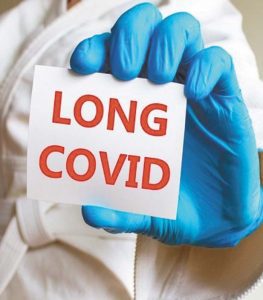 Intermittent Fasting means eating during a specific period and fasting (not eating) for the other period in a given day. The theory behind intermittent fasting is that humans did not evolve to live in environments where they had access to food 24 hours a day. Our ancestors lived in a time when food was scarce. They had to function at their best, physically and mentally, often while fasting.
Intermittent Fasting means eating during a specific period and fasting (not eating) for the other period in a given day. The theory behind intermittent fasting is that humans did not evolve to live in environments where they had access to food 24 hours a day. Our ancestors lived in a time when food was scarce. They had to function at their best, physically and mentally, often while fasting.
In modern times, this translates to not eating for some time in 24 hours. During intermittent fasting, food is eaten every day, however during a shorter part of the day. The 16:8 intermittent fasting diet is a common scenario. The 16:8 intermittent fasting diet limits eating to 8 hours a day and requires fasting, while drinking water, for the remaining 16 hours of the day. Although 16 hours seems like a long time, this includes time spent sleeping. The fasting period must include the nighttime sleep because this is when the brain is at rest and benefits most from the fasting.
Past studies have shown that intermittent fasting provides a host of benefits, including lowering the risk of diabetes and heart disease. Insulin resistance is reduced, blood pressure and cholesterol are lowered, and improved success with weight loss efforts are noted. In addition, people who fast regularly, are less likely to experience severe complications from COVID-19, according to a new Intermountain Healthcare study published this week in BMJ Nutrition, Prevention & Health.
The study found that people who practice regular water-only intermittent fasting had a lower risk of hospitalization or death due to the virus as compared to patients who did not fast. Benjamin Horne, director of cardiovascular and genetic epidemiology at Intermountain Healthcare, said in a news release, “Intermittent fasting has already been shown to lower inflammation and improve cardiovascular health. In this study, we’re finding additional benefits when it comes to battling an infection of COVID-19 in patients who have been fasting for decades.”
In the study, researchers identified patients enrolled in a voluntary health registry at Intermountain Healthcare who also tested positive for SARS-CoV-2 between March 2020 and February 2021 — before vaccines were widely available. Of the 205 who tested positive, 73 who said they fasted regularly once a month had a lower rate of hospitalization and death due to coronavirus. Participants who said they fasted regularly did so for an average of more than 40 years. “Intermittent fasting was not associated with whether or not someone tested positive for COVID-19, but it was associated with lower severity once patients had tested positive for it,” Horne said.
How Intermittent Fasting Affects Long Covid Symptoms:
• Decrease of Inflammatory Processes: COVID-19 provokes acute and then chronic inflammatory processes in several tissues and organs like the lung, brain and nervous system, gut, and heart. This leads to dysfunctions that the anti-inflammatory effects of fasting can directly improve.
• Cell and Vital Organ Rejuvenation: a COVID-19 infection as well as PSCS (Post-SARS-CoV-2 Syndrome) commonly known as Long Covid, can cause long-lasting damage to certain organs, particularly the lungs, brain, and heart. Recent publications show that fasting activates autophagy and apoptosis, two self-cleaning mechanisms that allow the body to get rid of old, damaged, or infected cells. After food re-introduction, stem cells boost the re-expansion of the organs, causing them to be “rejuvenated”. This ability of fasting to regenerate to some extent, the body’s damaged organs and structures can be greatly beneficial in treating Long Covid.
Doctors on the front lines, including Dr. Mobeen Syed, are beginning to hypothesize that people suffering from Long Covid still have spike proteins infecting some cells. These infected cells send out distress signals which our bodies recognize as inflammation. The cells infected with the spike protein can only be removed through the process of autophagy.
Fasting for 16 hours in 24 hours triggers our bodies to start autophagy.
We do not need to fast every single day to reap the benefits of Intermittent Fasting and Autophagy. Intermittent Fasting 5 days a week is a common pattern that many people can easily integrate into their lives.
Research Cited: Horne BD, May HT, Muhlestein JB, et al Association of periodic fasting with lower severity of COVID-19 outcomes in the SARS-CoV-2 prevaccine era: an observational cohort from the INSPIRE registry
BMJ Nutrition, Prevention & Health 2022;e000462. doi:
10.1136/bmjnph-2022-000462
Dr. Mobeen Syed, Radical Health Benefits of Autophagy, 2022, https://youtu.be/aotXZIKjG7c
Latitude Pediatric & Family Clinic: Where individual rights meet professional advice! We provide primary care to the entire family, starting with our sweet newborns and throughout their lifespan. Medicine is not one size fits all. Here, you are given the latitude to be the master of your path and destiny. Our goal is to provide medical recommendations while truly hearing, understanding, and respecting your concerns and goals.
Latitude Pediatric & Family Clinic:
2831 Ringling Blvd, Suite F220
Sarasota FL, 34237
941-253-2530
www.latitudeclinic.com










